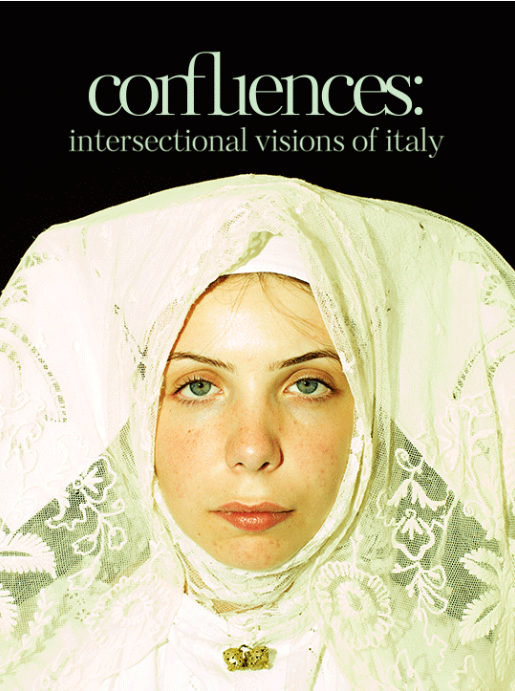The Georgetown University De La Cruz Art Gallery opened a new exhibition titled “Confluences: Intersectional Visions of Italy” on Jan. 26. “Confluences,” which will run until Apr. 7, delves into the intricacies of social justice matters associated with concepts of Italy, challenging the conception that Italy is geographically, culturally, politically or socially homogeneous. The exhibition showcases the creations of contemporary artists who counter incomplete historical narratives and falsely uniformed identities to address a diverse range of subjects, spanning from historic and contemporary forms of societal amnesia to current approaches of civic activism. Susannah Masson (CAS ’27), who works in the gallery, said the exhibition is divided into two sections. “One contains mostly single medium art whereas the other contains an audiovisual piece about 23 minutes long, but both of them are under the same theme of confluences of Italy,” Masson told The Hoya. Italy is a diverse country inhabited by numerous ethnic minority groups, including Romanian, Albanian, Mahgrebi and Arab populations. Italians are fluent in many diverse languages ranging from Greek to Croatian, and around 50 percent of Italians speak regional dialects such as Sardinian and Sicilian. Emma McMorran, exhibitions and public programs manager, said the concept of hydrofeminism, which views all elements of humanity and nature as interconnected, inspired the exhibition’s focus on Italy’s diversity. “The artists share commitments to linguistic exploration, critical thinking, research, and intersectionality — which recognizes how individual identities are shaped by factors such as race, gender, and nationality in unique ways that can both oppress and empower,” McMorran wrote to The Hoya. According to McMorran, the art displayed in the gallery is reflective of a broader Italian move toward cultural understanding and diversity. “As in a water system, their work can be regarded as diverse currents flowing toward one purpose: the affirmation of complex personal and historical narratives that challenge stereotypical understandings of Italy,” she added. According to the gallery’s press release, the exhibition was curated by Ilaria Conti and was organized by the Italian Cultural Institute of Washington in collaboration with Georgetown University Art Galleries. It showcases the work of seven artists: Dafne Boggeri, Valeria Cherchi, Giulia Crispiani, Maria Adele Del Vecchio, Binta Diaw, Alessandra Ferrini and Muna Mussie. Boggeri’s piece “Tilting off the Grid” highlights Italians’ history in the publishing industry. Cherchi’s “In Front of Beauty We Forgive Everything” captures the widespread issue of kidnapping in her native Sardinia. Crispiani’s “Claims & Broken Ties” examines Italy’s changing identity as its southern and eastern regions become more detached. Del Vecchio’s sculptures portray aspects of Italian feminist literature. Diaw’s “Paysage Corporel XIV” showcases the role and culture of Italians with African ancestry. Ferrini’s “My Heritage?” depicts the effects of Italy’s colonial history and legacy in north and eastern Africa. Mussie represents the role language plays in informing identity in her series of artwork. Alfred Acres, an art history professor and the interim director of Georgetown University Art Galleries, said Conti expertly curated the exhibition to unite several themes prevalent in Italian culture and society. “The work of these artists would not typically be shown together, but Ms. Conti has brought them together with compelling ideas that shed new light on each work individually and the larger themes in play,” Acres wrote to The Hoya. According to McMorran, the exhibition’s art will incorporate political and social justice issues, in part challenging standard perceptions of Italy and its history. “Such issues are far more complex than the single cultural, political, or social space it is commonly thought to be,” McMorran wrote to the Hoya. “These contemporary artists counter such familiar fictions through projects that consider nuances of individual and collective experience across a variety of topics, such as colonialism, societal amnesia, gender-based biases, and civic activism.”
This content was originally published here.



